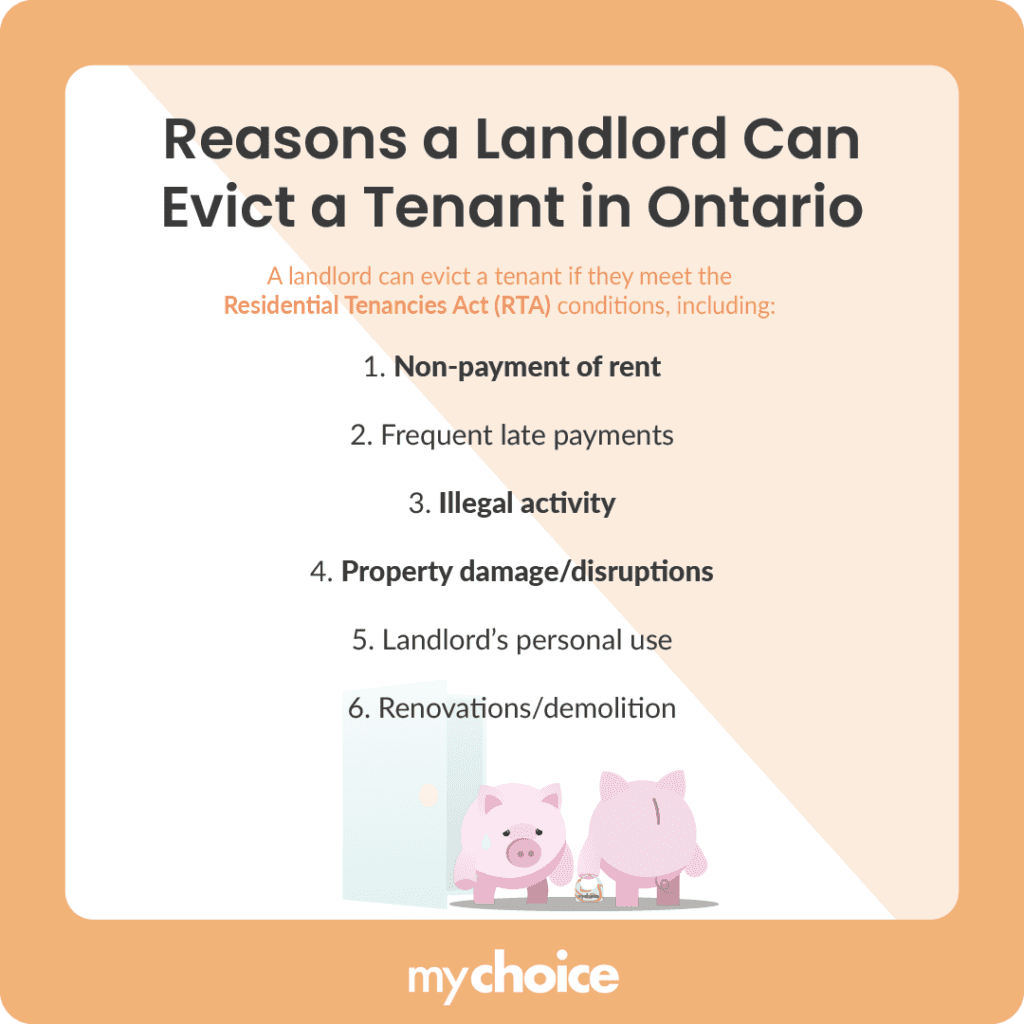A 2024 Statistics Canada report found that 3% of renters experienced an eviction in the past year, accounting for 1% of all Canadians. The study also noted that over half of these evictions were due to landlord-related reasons, such as the landlord needing the unit for personal use (30%) or selling the property (17%).
When can landlords serve eviction notices in Ontario, and what are the rules governing these notices? This guide covers common reasons for eviction, notice requirements, and the overall timeline in Ontario’s rental market. You’ll also learn whether renters insurance is legally required and how these rules may impact your tenancy.
When Can A Landlord Evict A Tenant In Ontario?
There are legal eviction rules for renting a property in Ontario. A landlord can issue an eviction notice if the conditions outlined in the Residential Tenancies Act (RTA) are met. Some common reasons include:

Can You Be Evicted For Not Having Renters Insurance In Ontario?
In most cases, not having renters insurance is not a standalone legal reason for eviction in Ontario. The law does not require tenants to carry renters insurance. However, if your lease agreement states you must maintain insurance and you fail to do so, the landlord may attempt to argue a breach of contract.
Most eviction applications in Ontario come down to one main issue – unpaid rent, making up about 60% of cases. Other reasons, like property damage, illegal activity, or a landlord needing the unit for personal use, happen less often but can still lead to eviction.
Rules For Eviction Notice In Ontario
Landlords in Ontario must follow strict legal procedures and use the correct forms when issuing an eviction notice. These regulations protect tenants’ rights, ensuring they have an opportunity to address the issue or challenge the notice if they believe it is unfair. Key considerations include:
Types Of Eviction Notices In Ontario
Eviction notices are often referred to in the form of numbers, such as N4, N5, N7, N12 or N13. Here’s a snapshot of the most common types according to the majority of situations in Ontario:
How Quickly Can A Landlord Evict A Tenant In Ontario?
Evictions are not immediate. The quickest eviction process typically occurs due to non-payment of rent, which begins with a 14-day notice period using the N4 form.
However, even if the tenant does not pay or vacate within that time, the landlord cannot evict them immediately. Instead, they must apply to the LTB, wait for a decision, and, if an eviction order is granted, have it enforced by the Sheriff’s office.
Key Advice From MyChoice
- Whether you’re a landlord or a renter, it’s important to understand your rights and responsibilities under the Residential Tenancies Act. Keeping open lines of communication can help prevent conflicts from escalating while ensuring everyone stays informed about their legal obligations.
- Both landlords and tenants should keep records of rent payments, written notices, and any important communication – it’s a simple step that can help prevent misunderstandings down the line.
- If you’re a renter, you should consider renters insurance even if your landlord doesn’t require you to have coverage. Renters insurance can protect you from financial losses due to perils like fire and theft, or liability claims.








